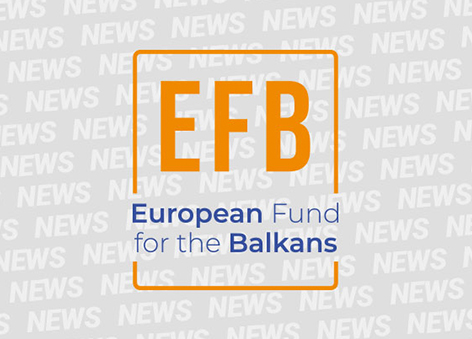
 Friday, 17th December 2010, 10.30 – 12.30
Friday, 17th December 2010, 10.30 – 12.30
The European Fund for the Balkans (EFB) in cooperation with Gallup Europe and in partnership with the Kosovar Civil Society Foundation (KCSF)
The panel was opened with a short introduction by Fatmir Curri, Programme Coordinator at the Kosovar Civil Society Foundation and Biljana Meshkovska, Program Manager, European Fund for the Balkans.
The findings were discussed by a panel including Hajrulla Ceku from Foregin Policy Club, Engjëllushe Morina from IKS, Momcilo Arlov from CCSD, Ariana Qosaj – Mustafa from KIPRED, Ramadan Ilazi from FOL Movement and Andrzej Pyrka from Gallup Brussels. The discussion was moderated by Xhemajl Rexha from daily KTV and Koha Ditore, Prishtina.
According to the survey, Kosovo holds the highest percentage of people in the region, who have answered positively when asked if they have smiled the previous day. Unfortunately, as Hajrulla Ceku pointed out – ‘we smile when we feel bad’ - a common characteristic to both ethnic Albanians, and ethnic Serbs added, Momcilo Arlov. And from some of the points that followed, it seemed obvious that as Hajrulla Ceku further noted ‘Kosovo is going in a bad direction’.
The primary focus of the discussion was corruption, trust in institutions, and where the responsibility lies in fighting the former, while building the latter.
Opinions seem to be divided as to the level of involvement of the international community, in both fighting corruption and organized crime, as well as in governing the country.
The confusion as far as accountability goes seems to be perpetuating a society where it is acceptable and not uncommon that corruption and crime goes hand in hand with governance.
In fact, as Ramadan Ilazi noted, until very recently, organizations who called on citizens not to vote for officials under investigation for corruption were considered radical.
However, one message seemed to be clear – the focus needs to be on educating the community, so in the very least, they vote in a more informative way in the next elections in Kosovo.
The following panel discussion will be in Podgorica, end of January 2011.
{gallery}gallery/15{/gallery}






